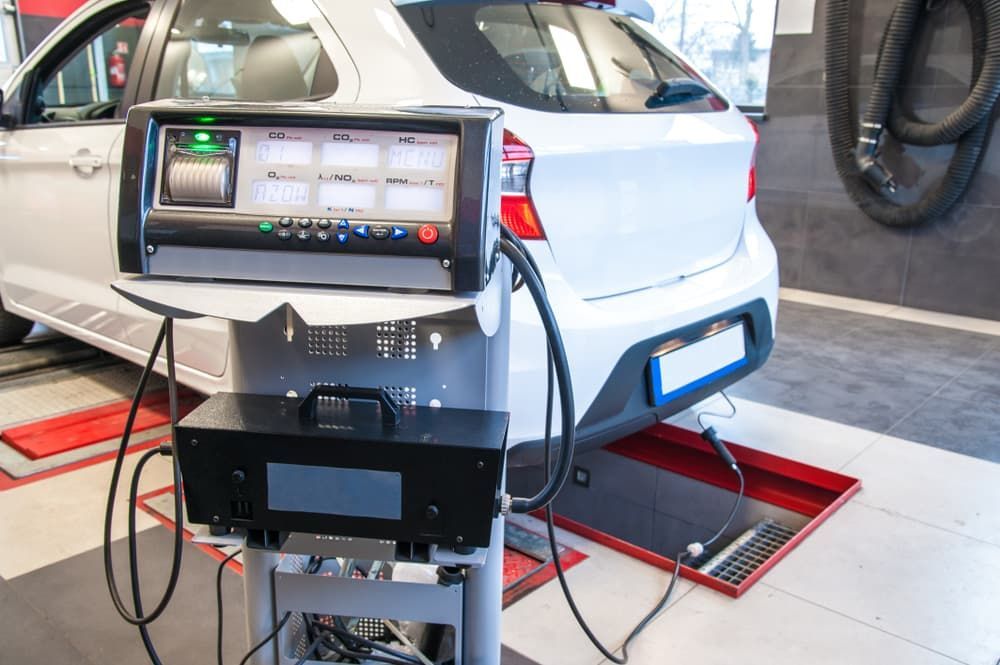Diagnostics in Coffs Harbour
- Up-to-Date Scan Tools
- Quick Fault Detection
- Clear, Honest Explanations
Request a Callback
Thank you for contacting Coffs Auto Service.
We will be in touch soon.
Please try again later.
Coffs Harbour Vehicle Diagnostics
If your dashboard light has come on and you're not sure why, you’re not alone—modern cars rely on dozens of sensors that can be tricky to interpret without the right tools. At Coffs Auto Service in North Boambee Valley, we take the guesswork out of vehicle issues for Coffs Harbour drivers with professional diagnostics.
Using up-to-date scan tools, we check your engine, transmission, electronics, and more to pinpoint the cause of the problem—fast. In addition to using the latest tools, we're trusted for:
- Same day bookings
- Fully licensed workshop
- Clear upfront quotes
- Locally owned & operated
- All make & model servicing
- Tyre checks, replacements & balancing
To find out what’s really going on with your car, give us a call on 0402 058 988—we’ll get to the bottom of it and get you moving again.
Fast Fault Finding, Honest Advice
Diagnostics isn’t just about plugging in a scanner—it’s about knowing how to read the results and apply them to your specific vehicle. We combine digital testing with hands-on checks to confirm what’s really happening under the bonnet. Our goal is to identify the problem before it turns into something more serious or expensive. Common issues like warning lights, starting troubles, rough idling, and power loss can often be resolved quickly when you’ve got a clear diagnosis. And if the issue requires further repairs, we’ll walk you through your options with upfront pricing and no pressure.
Book a diagnostics check with us today by calling 0402 058 988—it’s the first step toward saving time, money, and stress.
What does a car diagnostic test check for?
A car diagnostic test checks the performance and condition of a vehicle’s key electronic systems using specialised scan tools that interface with the car’s onboard computer. The test identifies faults or irregularities in areas such as the engine, transmission, exhaust system, fuel injection, ignition timing, and various emission control systems. It can also assess battery health, sensor performance, and even ABS (anti-lock braking systems) or airbag systems in newer models. Diagnostic codes (called OBD-II codes) are generated to pinpoint exactly which component is malfunctioning or outside normal operating range. While the scanner reveals where a problem is occurring, additional inspection is often needed to determine the underlying cause and solution. Regular diagnostic testing can help detect early issues, improve fuel efficiency, and prevent costly breakdowns.
When should I get a car diagnostic test?
You should get a car diagnostic test when you see a warning light on your dashboard—especially the check engine light—or if you notice symptoms like rough idling, decreased fuel economy, engine misfires, or unusual vibrations or noises. A diagnostic test is also helpful before a long road trip or after a recent repair, to confirm everything is functioning correctly. Even if your vehicle seems fine, a preventative diagnostic scan every 12 months or so can help detect hidden issues before they turn into major problems. For vehicles with advanced onboard systems, regular scans are particularly useful in maintaining performance and ensuring all components are communicating properly with the ECU (engine control unit).
How long does a car diagnostic take?
A standard car diagnostic test typically takes 30 to 60 minutes, depending on the complexity of the issue and the vehicle’s make and model. The process involves connecting a scan tool to the vehicle’s OBD-II port, reading the fault codes, and interpreting them to identify any active or stored problems. In some cases, additional time is required for visual inspection or road testing to confirm the cause of a fault. If repairs are needed immediately, the total visit time will increase. However, for most simple checks—especially if you're only investigating a warning light or performance issue—the scan itself is quick and can provide instant insight into the vehicle’s health.






